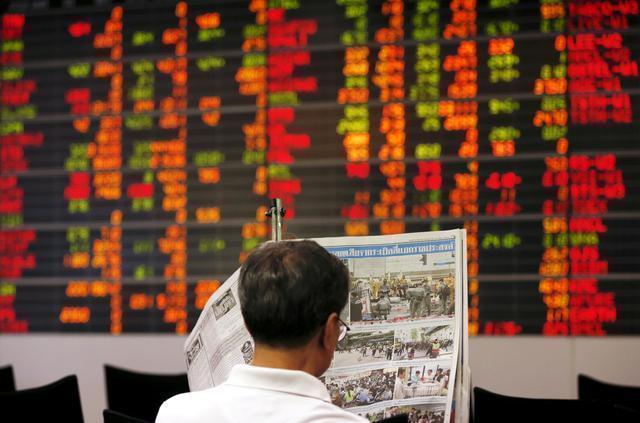Winter is coming!
The European Central Bank (ECB) joined the ‘global interest rate hike competition’ after 11 years, while the world fights against inflation. A 50-basis point hike by the ECB, which exceeded forecasts, displayed the seriousness of the issue in the European Union. The ‘inflation monster’ is stronger than expected. The fight won’t be easy as it is driven by energy and food prices as well as the supply chain. Although the grain corridor has enabled some relief, supply must be sustainable as increasing global sanctions by on Russia raise uncertainties, according to Sukru Cem Kaya, Domestic Markets Director of Ata Yatirim. The risk of increasing costs is increasing despite the government’s attempts to control it with macroeconomic policies. “If inflation doesn’t decline, the ‘stagflation’ issue will start to be discussed following a potential recession in Europe,” said Kaya.
Touching on Turkey, Kaya stated that the summer season should continue without issue despite increasing COVID-19 cases. Turkey’s hand is weakening due to the election to be held in less than a year, the negative real interest rate, and the net minus foreign exchange reserves. “While the FX-protected TRY deposit account and the stock exchange are considered the only alternatives for investors in line with the current policies, it’s important to be selective on the stock exchange in the medium and long term,” Kaya added.
On the agenda this week, the Central Bank’s (CB) third Inflation Report of the year will be announced by CB Governor Sahap Kavcioglu on July 28. The year-end inflation forecast, which stood at 42.80% for 2022, is expected to be revised upward. Inflation is estimated to hit 69.94% this month according to the CB’s Survey of Market Participants. Experts say they expect the CB to raise the year-end inflation above 60% for 2022.
Moreover, we’ll begin to see the financial statements released by companies for the second quarter of this year by July 26. Analysts expect a strong Q2 balance sheet with the impact of inflation. They also estimate the upward trend will continue in Borsa Istanbul’s BIST 100 Index.
Ukraine has begun to put convoys in the Odesa, Chornomorsk, and Yuzhne ports to export grain out of the country, according to a statement from the country’s Sea Ports Authority. The statement said the preparations began to make the three ports operational again under the deal signed in Istanbul on Friday for the resumption of the export of Ukrainian grain and related food products. An application needs to be submitted by each vessel to be included in the convoys, and their arrivals and departures at the seaports will be accompanied by a leading vessel, it added. The Ukrainian Infrastructure Ministry previously said the three ports would begin to operate within two weeks.
Moreover, Turkey’s coordination efforts continue for the first ship loaded with grain to depart from Ukraine’s Black Sea ports, according to the National Defense Ministry. It tweeted that work continues at the Joint Coordination Center established in Istanbul for the safe delivery of the grain waiting in Ukrainian ports to countries all over the world.
DAILY AGENDA
The Real Sector Confidence Index dropped by 2.7 points to 103.7 points in July, compared to the previous month, according to the Central Bank.
The capacity utilization rate rose by by 0.6 points to 78.2% in July, month-over-month, according to the Central Bank.
The seasonally adjusted confidence index declined by 1.5% in the services sector and 4.5% in the retail trade sector, while it increased by 2.4% in the construction sector in July, compared to the previous month, according to the Turkish Statistical Institute (TurkStat).
IN OUR MAGAZINE THIS WEEK:
>> On the cover: Wellbees, a new generation employee well-being platform, received an investment of USD 2.2m in its seed investment round in May. The investment will be used for technology investments and the global growth of the company, said Wellbees Founding Partner Melis Abacioglu, who values being a zebra more than being a unicorn. “We will continue to grow, especially in the MENA region, where we already started to establish companies, and in the UK, where we opened our first overseas office last year,” Abacioglu added. You can read the details on pages 8-9.
>> Professor Ilter Turan analyses ‘the trilemmas of Syrian politics’ on page 10.
>> Q&A: Irit Lillian, Chargé d’Affaires from Israel to Turkey. P. 11.
>> Chief Economist Gunduz Findikcioglu: Body natural and body politic. Pp. 12-13.
>> In Syria, who is a terrorist and who is not? Our Foreign Policy Columnist Zeynep Gurcanli answers the question on page 14.










